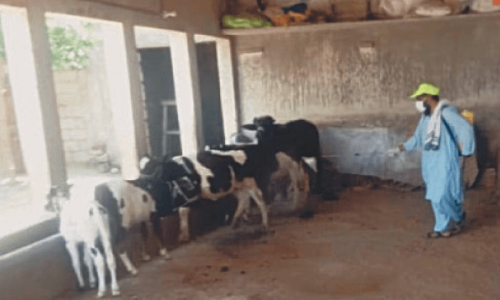ISLAMABAD: More than 90pc disaster-prone communities across four provinces observed that they have never been consulted and involved in disaster risk assessment, planning and implementation by state institutions.
They also noted that there existed no coherence in development policies as far as disaster risk reduction and climate change adaptation was concerned.
These are the key findings of Pattan’s study on inclusive disaster risk governance – views from frontline. The project is being implemented simultaneously in Pakistan as well as in 52 countries in five continents.
Sarwar Bari, National Coordinator Pattan, presented the salient features of the study at a two-day ‘National stakeholders’ workshop on DRR and resilience’.
More than 1,700 households, 150 NGOs and 150 officials of local governments were interviewed across 15 districts of the four provinces. At least 52pc of the community sample comprised women and 48pc men.
Besides representatives of disaster-prone communities from 15 districts, chairperson of a subcommittee of the Senate for Climate Change Seemee Ezdi, Senator Fauzia Arshad, members Senate subcommittees on health, education and interior, Chairman Federal Flood Commission Ahmad Kamal, Director General Rescue 1122 Emergency Services Dr Rizwan Naseer, Director General Met Office Sahibzad Khan and others participated in the workshop.
Ms Ezdi encouraged the organisers to help improve legislation on climate change and for the involvement of women and communities in DRR.
Ms Arshad assured the participants that she would try her best as a senator to improve health education and participation of women in disaster management.
She said the state was responsible to fulfil its role to make citizens part of planning.
Dr Naseer said Pakistan has too many laws on disaster management and too many disaster management institutions and this created confusion and tensions while the country lacked effective accountability mechanism.
Mr Kamal said the country has no third tier of governance and that was the main reason for lack of policy implementation.
Mr Khan of Met Office said this year 400pc more rains had already fall. Poor and inadequate infrastructures are more responsible for destruction than rains, he observed.
Abdul Qadir of Pattan Board said hazard and people centered disaster discourse was must for the country.
Mr Bari of Pattan said for decades disaster narrative had been ‘nature’ focused. Most governments and disaster experts tend to blame unprecedented natural events for destruction.
This narrative is an attempt to hide their poor planning and governance. He suggested to have a paradigm shift on disaster narrative to improve DRR.
The study ranked five disasters as most frequent and most devastating — flooding, earthquake, diseases/epidemics, pollution, heavy rainfall. Many respondents of the study also believed poverty and inequality were disasters.
Published in Dawn, July 30th, 2022













































Dear visitor, the comments section is undergoing an overhaul and will return soon.